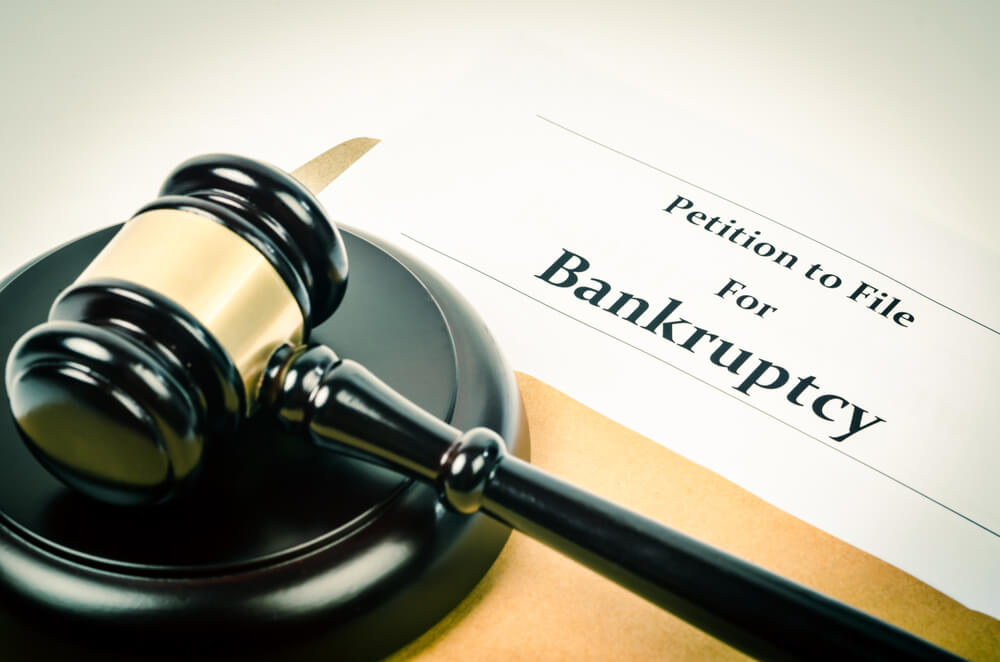
Sometimes life can throw you a curveball and you’re hit with financial responsibilities that you were previously unprepared for. It could be the sudden loss of your employment, an investment gone bad, or possibly the unexpected hospitalisation of a loved one. No matter the reason, you find yourself looking at your dire financial situation and seriously contemplate whether or not it is time for you to file for bankruptcy.
Being in debt is a stressful experience, and the option to file for bankruptcy may or may not be the best for you and your situation.
What is Bankruptcy?
Being bankrupt means you are insolvent — that is, you are unable to pay your debts when they are due.
There is a due process to be able to declare bankruptcy and there are two ways to do so: voluntarily (otherwise known as debtor’s petition) and by way of the creditor (also known as creditor’s petition). There is no minimum amount of debt to be able to file for bankruptcy.
For many people being bankrupt can provide relief and protection from legal action from creditors but there is a catch – you need to be able to hand control over to a trustee of your finances and property. Basic personal property can still be within your possession.
The Advantages and Disadvantages of Filing for Bankruptcy

Just like all things there are pros and cons that you should be aware of. Filing for bankruptcy can make a lasting impact not just on your finances but also on your life. So what is the downside of filing for bankruptcy and are there any positive consequences of being bankrupt?
Advantages:
- You get to start on a clean slate and try to rebuild your finances again.
- Creditors will stop contacting you.
- Most of your debts will be cancelled. This may include personal loans, credit card debt, payday loans, and such.
- Personal property is protected and can’t be seized by the sheriff’s office. This includes clothing, household furniture, and a cheap motor vehicle (with a max value of $8000). You may even still continue living in your own home.
- You get to keep savings in your account provided that it stays within a regular savings account.
- You may continue working and even own a business while you are bankrupt.
- Super you have accumulated will still be made available to you when you reach retirement age. Even the super that your employer pays while you’re bankrupt is protected.
- You can file for bankruptcy in the comfort of your home. It is completely private and creditors won’t be informed of your intention for filing bankruptcy until after you become bankrupt.
- You may continue to travel around the country.
- Finally letting go of such a heavy financial burden will give you peace of mind, better health, and help you sleep more peacefully.
Disadvantages:
- You’re bankrupt for 3 years and 1 day.
- Lack of privacy. From the moment you are officially and legally “bankrupt”, you need to inform your trustee of any assets you will incur. This may include gifts, winnings, and any assets you obtained. Your income needs to be reported to your trustee as well, whether you receive an increase or decrease in salary or if you have resigned or been laid off.
- Not all of your debt will be completely erased. There are debts that you need to pay and your trustee will make sure of that. These debts include fraudulent debts, social debts, fines imposed by the court, alimony, and such.
- High value possessions will be handed over to a trustee. An example of a highly valuable possession are antiques.
- Your bankruptcy will be on permanent record by the Federal Government which maintains the National Personal Insolvency Index (NPII).
- You may not travel overseas unless your trustee allows you to.
- Your credit rating will be affected. Your inability to pay off debt before filing for bankruptcy will still be in your credit record. Your bankruptcy will show up on your credit report for 5 years or 2 years after the bankruptcy has ended (whichever is longer). Since your name is permanently on the NPII, any creditor can search its database for fee making it difficult for you to acquire credit.
- You will have a hard time getting loans in the future. Applying for credit while you are bankrupt will also be challenging if the amount exceeds $5,882 — you will need to inform the creditor of your bankruptcy.
- Employment opportunities will be restricted. You can’t be director of a company.
- While it is safe to save money while you’re bankrupt, you may only keep your savings in a regular bank account. If you transfer your resources to a long term account, your trustee will be notified and will use it to pay off debt.
- If you have unexpectedly received a large amount of money such as from inheritance or lottery winnings, the trustee will automatically use it to pay off debts. Any left over money will be paid to you by the trustee.
Avoiding Bankruptcy in the First Place
As you can see, being bankrupt isn’t as cut and dried as we thought it could be. There are serious consequences to consider and if you have done your due diligence, you may be able to make an informed decision about whether or not filing bankruptcy is for you.
To avoid making this stressful and difficult decision, here are some useful tips from JMA Credit:
- List down all necessary expenses you have in a month such as utility bills, rent, grocery, and loans you need to pay off. This will help you budget your income better.
- Live within your means. After setting aside the necessary amount you need every month, you should have a bit of leftover money. Use this wisely.
- Make use of the 50-30-20 rule. A simple computation to help you manage your finances better, the 50-30-20 rule states that 50% of your monthly income should go to living expenses; 30% goes to personal entertainment or enjoyment; and the 20% should automatically be your savings. Try it for yourself and give it at least 3 months and adjust the ratio accordingly.
- Don’t bring your credit card with you. Avoid using plastic money when you go out. Pay in cash. There is a psychological effect when you see your money becoming less and less in your wallet, forcing you to control your spending.
- Pay off debts as soon as possible. The sooner they are paid off, the better!
- Think of another source of income such as a small business. When you begin your trade, make sure that you have contracts drawn up by professionals to help all business deals go smoothly (link).
Alternatives to Bankruptcy
Toying around with the idea of filing for bankruptcy? Don’t be too hasty. You may want to think about these alternatives to bankruptcy:
- Making a deal with your creditors. Talk to them and explain your situation. Ask for more flexible payment terms such lengthening the time to pay off debt or smaller monthly payments.
- Personal Insolvency Agreement (PIA). This means you will come to an agreement with your creditors and a trustee will be appointed to handle your property. They will offer it to creditors as a way to partially or entirely pay off your debt, either by installment or in lump sum.
- Part 9 Debt Agreement. This is a type of bankruptcy but there are differences between the two. For example, if you enter into a Part 9 Debt Agreement:
- You are only under the agreement until you pay off your debt (as opposed to bankruptcy which lasts for 3 years and 1 days);
- Your name will appear on the NPII for 5 years from the date the agreement begins or 2 years after it ends, whichever is longer.
- Employment opportunities aren’t affected or restricted.
These are just a few of the differences between a Part Debt Agreement and filing for bankruptcy.
Money Matters

Indeed, money does matter in this day and age. However, it is entirely up to you whether you allow yourself to be consumed by it to the point of going bankrupt. Make sure that before you take out that loan or you swipe that credit card, you have enough money in the bank to pay it off in the future.
Frequently Asked Questions About Bankruptcy
How does filing for bankruptcy affect one’s ability to secure a mortgage or finance for property in the future?
One of the consequences of bankruptcy is that it can severely impact your credit history, as noted by the Australian Financial Security Authority. This tarnished credit report may deter lenders from offering loans, affecting your ability to buy a home or secure property finance, and could necessitate higher interest rates or substantial deposits.
What are the specific impacts of bankruptcy on securing future employment in sectors other than being a company director?
Filing for bankruptcy might hinder employment opportunities in fields requiring financial integrity. Employers in finance, legal sectors, or government positions may review credit reports, where bankruptcy could influence their hiring decisions, impacting roles beyond company directorship.
Can you detail the process and criteria used by the bankruptcy trustee to determine compulsory payments or contributions from the individual’s income?
A bankruptcy trustee, following the Bankruptcy Act, evaluates your income against thresholds determined by the Australian Financial Security Authority. If your income surpasses this limit, compulsory payments are required. This assessment accounts for your financial situation, including earnings, dependents, and essential living costs.





















